Samer Bazzi
GMM-based Codebook Construction and Feedback Encoding in FDD Systems
May 24, 2022
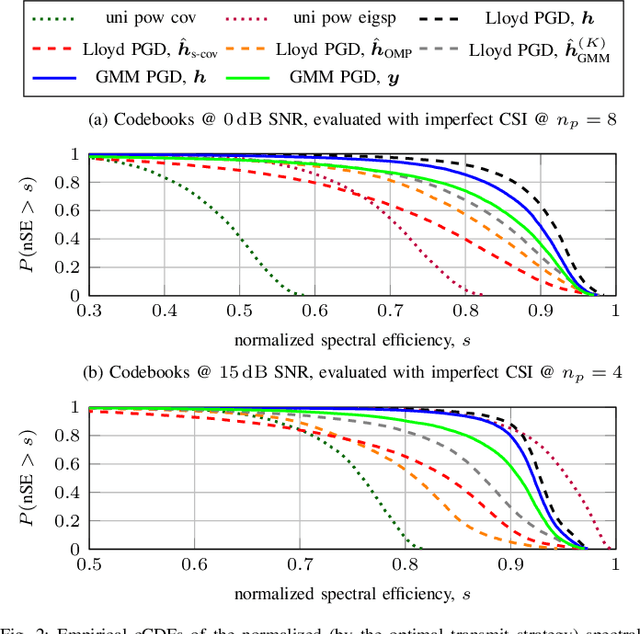

Abstract:We propose a precoder codebook construction and feedback encoding scheme which is based on Gaussian mixture models (GMMs). In an offline phase, the base station (BS) first fits a GMM to uplink (UL) training samples. Thereafter, it designs a codebook in an unsupervised manner by exploiting the GMM's clustering capability. We design one codebook entry per GMM component. After offloading the GMM-but not the codebook-to the mobile terminal (MT) in the online phase, the MT utilizes the GMM to determine the best fitting codebook entry. To this end, no channel estimation is necessary at the MT. Instead, the MT's observed signal is used to evaluate how responsible each component of the GMM is for the signal. The feedback consists of the index of the GMM component with the highest responsibility and the BS then employs the corresponding codebook entry. Simulation results show that the proposed codebook design and feedback encoding scheme outperforms conventional Lloyd clustering based codebook design algorithms, especially in configurations with reduced pilot overhead.
Unsupervised Learning of Adaptive Codebooks for Deep Feedback Encoding in FDD Systems
May 21, 2021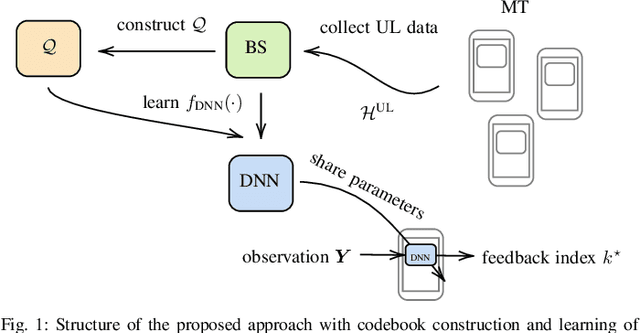
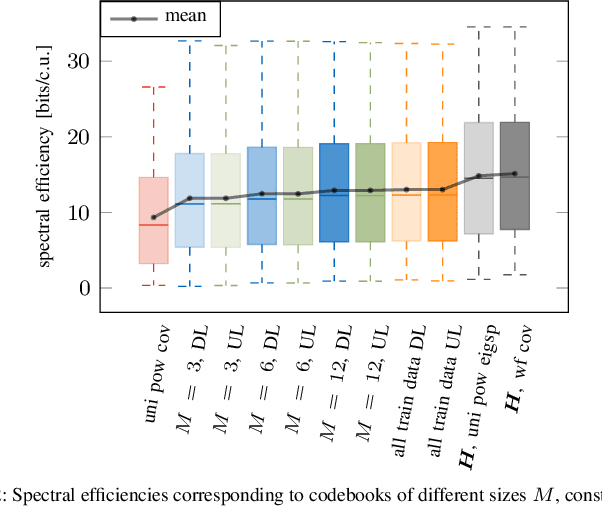
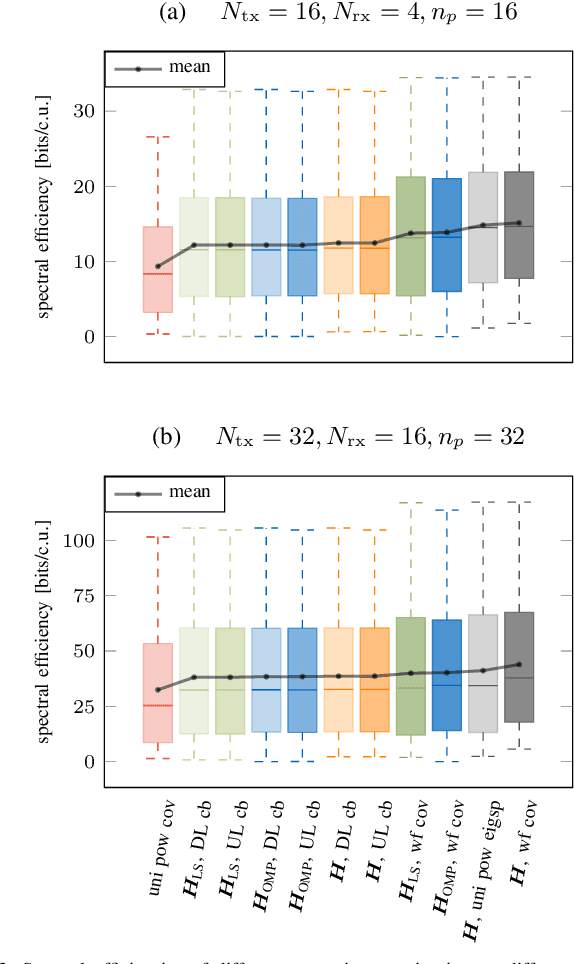
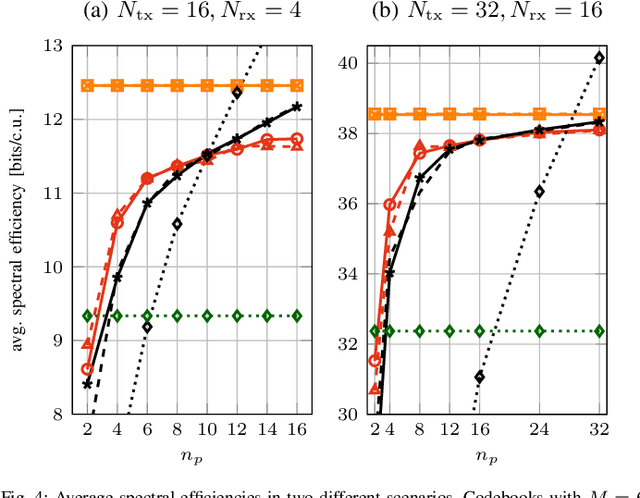
Abstract:In this work, we propose a joint adaptive codebook construction and feedback generation scheme in frequency division duplex (FDD) systems. Both unsupervised and supervised deep learning techniques are used for this purpose. Based on a recently discovered equivalence of uplink (UL) and downlink (DL) channel state information (CSI) in terms of neural network learning, the codebook and associated deep encoder for feedback signaling is based on UL data only. Subsequently, the feedback encoder can be offloaded to the mobile terminals (MTs) to generate channel feedback there as efficiently as possible, without any training effort at the terminals or corresponding transfer of training and codebook data. Numerical simulations demonstrate the promising performance of the proposed method.
 Add to Chrome
Add to Chrome Add to Firefox
Add to Firefox Add to Edge
Add to Edge